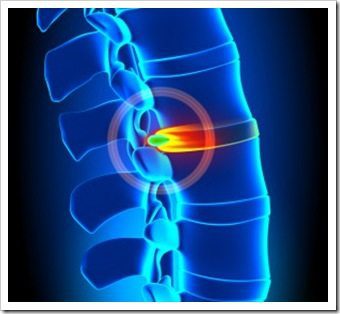
We are often asked questions about various treatment options for bulging/herniated discs and degenerated discs and which ones offer the best outcome and chance for success. Over the last several years Spinal Decompression Therapy has become one of the most popular treatments that patients ask about.
With recent advances in biotechnology, spinal decompression has evolved into a cost-effective nonsurgical treatment for herniated and degenerative spinal disc disease, one of the major causes of back pain. This nonsurgical treatment for herniated and degenerative spinal disc disease works on the affected spinal segment by significantly reducing intradiscal pressures.
What The Research Says
Clinical studies have been performed to evaluate the effect of spinal decompression on symptoms and physical findings of patients with herniated and degenerative disc disease. Results showed that 86% of the 219 patients who completed the therapy reported immediate resolution of symptoms while 84% remained pain-free 90 days post-treatment. Physical examination findings showed improvement in 92% of the 219 patients and remained intact in 89% of these patients 90 days after treatment. This particular study shows that disc disease – the most common cause of back pain, which costs the American healthcare system more than $50 billion annually – can be cost-effectively treated using spinal decompression. The cost for successful non-surgical therapy is less than a tenth of that for surgery. These results show that biotechnological advances of spinal decompression reveal promising results for the future of effective management of patients with disc herniation and degenerative disc diseases.
Is Spinal Decompression Right For Me?
Spinal decompression therapy is a treatment option for people with long-term back pain, sciatica, leg pain, degenerative disc disease, herniated discs, numbness and other conditions that have not responded to initial treatments such as chiropractic adjustments, manipulation, and physical therapy. Compressed discs can lead to herniation, bulging or brittleness of the discs. The problem is often perpetuated because the compressed disc restricts the flow of nutrients to itself which it needs to heal. In addition to the pressure and compression, the nerve itself may not be able to receive the nutrients it needs to heal and work properly.
Spinal decompression therapy is considered to be a non-invasive, non-surgical alternative that offers gentle decompression of the spine through the use of specially designed, FDA-approved equipment. Prior to treatment, patients are thoroughly examined both manually and through the use of imaging technology in order to determine which spinal discs are compressed and if the treatment is suitable and has a high likelihood of success.
Research has shown it to be very effective for a high percentage of patients but some patients it is not effective at all. At this point, it is not entirely clear which people it will work best on. Therefore, it is important to work carefully with your chiropractor and physical medicine team to be sure you have a good chance of successful treatment. Your chiropractor may precede each treatment with soft tissue muscle work to reduce the body’s natural reflex reaction and prepare the muscles for the traction forces. He or she will also work with other health professionals as needed to determine the precise nature of your back pain and the type of treatments that are most likely to resolve your pain at its source.
How Does Spinal Decompression Work?
Patients are placed on a decompression table in a comfortable posture that depends on which area of the back needs treatment. The treatment applies a specific force to the compressed discs, and a computer alternates the decompression force with relaxation periods. Usually, there is a series of 10-20 alternating decompression and relaxation cycles with individual treatment times between 15-30 minutes. This process serves to gently elongate the spine and to create a vacuum that pulls the disc back into its proper location and shape within the vertebrae. Realigning the discs in this manner can reduce pain and promote healing. However, on average it will require 20 treatments to experience significant improvement with a compressed disc.
We Can Help!
If you or someone you know is suffering from one of the conditions that we have specified above, please call to schedule a consultation with our expert team.
Our integrated healthcare team looks forward to answering any questions you may have and help to determine if you are a candidate for Spinal Decompression Therapy.
For Your Health,
Dr. Che Connelly
